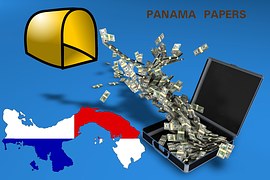|
I sometimes wonder if I was put on this planet to defend tax competition and tax havens. I argue for fiscal sovereignty, good tax policy, and financial privacy to the denizens of Capitol Hill, both in writing and in person.
My affection for low-tax jurisdictions is so strong that I ran the risk of getting thrown in a Mexican jail and also was accused of disloyalty to America by a bureaucrat for the Treasury Department. Though I much prefer the hardship duty of arguing for tax competition and tax havens in places such as Bermuda, Antigua, Monaco, the British Virgin Islands, Anguilla, and the Cayman Islands. Yes, I’m willing to go the extra mile in the fight for economic liberty. And, if nothing else, my intensity on these issues makes me quotable, at least to writers for the Economist.
But I’m not the only one with sensible views on these issues. A different article in the Economist highlights some benefits made possible by “tax havens.”
He uses his own experiences as an example.
He concludes with some wise words on the value of low-tax jurisdictions for the rest of the world.
In a piece for the Financial Times that focuses primarily on British offshore financial centers, Richard Hay explains why so-called tax havens are so valuable.
He cites one example of how Jersey (one of the Channel Islands, not the over-taxed New Jersey in the United States) produces big benefits for the United Kingdom.
And workers are big beneficiaries.
In a column for City A.M., James Quarmby highlights some of the practical and appropriate business reasons for utilizing so-called tax havens.
By the way, there is an effective and pro-growth way to boost tax compliance, as explained in another article in the Economist.
Pierre Bessard of Switzerland’s Liberales Institut looks at the big picture in his monograph on Individual Rights and the Fight Against Tax Evasion. He starts by noting that the entire anti-tax competition campaign is an illegitimate exercise of “might makes right.”
He then explains that anti-tax competition advocates rely on laughable arguments about the supposed desirability of bigger government.
And he also explains why tax competition leads to better tax policy and more growth.
The bottom line is that tax competition protects individuals by at least partially constraining the greed of the political class.
And Pierre closes by noting the powerful intellectual lineage in favor of systems diversity as a driver and protector of liberty.
P.S. Pierre also wrote a superb column a few years ago about tax competition, fiscal sovereignty, and financial privacy for the New York Times. P.P.S. Here’s my video on the economic case for tax havens. P.P.P.S. Let’s not forget that the Paris-based Organization for Economic Cooperation and Development is the international bureaucracy most active in the fight to destroy tax competition. The is doubly outrageous because, 1) our tax dollars subsidize the OECD, and 2) those bureaucrats get tax-free salaries!
|

